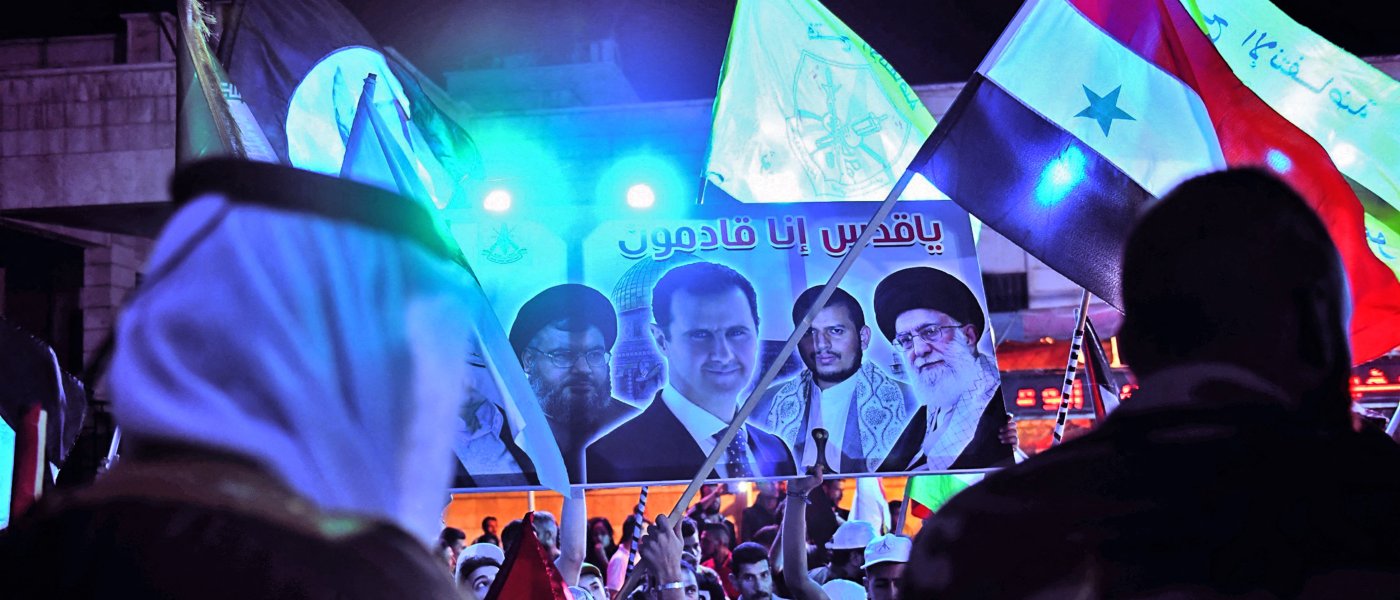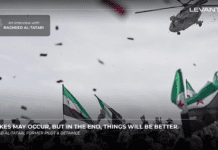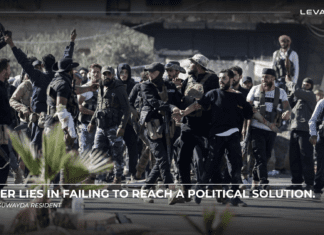
As tensions continue to rise in the Middle East, Iran’s involvement in the Syrian conflict stands out as a pivotal force shaping the region. While the Biden administration and Israeli officials frame the ongoing military operations against Iran and its allied factions as a potential turning point, the deeper realities of Iran’s influence in Syria suggest this is far from a decisive moment. Without a broader political solution that addresses the demands of millions in the region, from Palestinians to Syrians, tactical victories are fleeting, and Iran remains entrenched in a “long game” strategy that has implications far beyond any immediate military outcomes.
A recent CSIS study by Natasha Hall posits that despite suffering tactical losses, Iran and its proxy Hezbollah continue to wield significant influence across a wide swath of territory, from the Mediterranean to the Iranian border. Hezbollah, which has been involved in the Syrian conflict since its onset in 2011, has proven adept at recovering from short-term setbacks. While the US and Israel have launched targeted strikes against Iranian and Hezbollah forces, these efforts have not fundamentally shifted the strategic balance on the ground.
While the West favors “swift resolutions,” Iran and Hezbollah operate with patience and foresight. This persistence has allowed them to deepen their foothold in places like Syria, Iraq, and Yemen, where other powers have retreated. While Hezbollah is currently reeling from a series of military losses, including the assassination of its leader Hassan Nasrallah, the group has historically shown resilience, using chaos and power vacuums to its advantage.
Iran’s support of the Assad regime has been critical to its survival. Though their intervention has secured key victories for Assad, it has also come at a significant cost to their image and operational security. The involvement of these groups in the brutal suppression of revolutionary forces has exposed them to increased intelligence-gathering efforts, leading to high-profile losses, including strikes on Iranian positions and secret weapons facilities.
Still, Iran’s influence in Syria has expanded. In areas around Damascus and western Syria, Hezbollah has played a direct role in controlling territory and besieging liberated areas. Iranian forces, often through proxies, have exerted control over key areas east of Damascus, ensuring that Tehran’s influence remains embedded in Syria’s political and military fabric.
Hezbollah’s participation in the Syrian Revolution has also marked a significant shift in its public perception. Once revered in much of the Arab world as a resistance movement against Israel, Hezbollah’s actions in Syria have damaged its image. Instead of fighting the “Zionist enemy,” they are involved in the violent suppression, sieges, and massacres of Sunni Muslims, tarnishing its reputation among many former supporters.
The expansion of Iranian and Hezbollah influence in Syria has occurred with relatively little pushback from the international community, allowing Tehran to act with impunity in many respects. Even in areas where the revolution was once strong, such as Daraa, Hezbollah has managed to recruit fighters from local populations, taking advantage of the despair and desperation of communities devastated by years of war and economic devastation.
The broader implications of Iran’s involvement in Syria go beyond the immediate conflict. As Israel and the US focus on short-term military gains, Iran is playing a drawn out game, one that could see it emerge stronger despite current setbacks. Hezbollah’s recruitment from war-torn communities, combined with Iran’s strategic use of militias and proxy forces, means that this deeply entrenched network will likely shape any future regional conflict.
Iran’s influence in Syria highlights the complexity of the ongoing conflicts in the region. While tactical victories against Tehran’s forces may offer short-term gains, in the grander scheme, things remain uncertain. Without a solution addressing the needs of the people affected by these wars, Iran and Hezbollah will continue to endure immediate “quick fix” Western policies, securing influence and shaping the future of the region in ways that may outlast current countermeasures.








